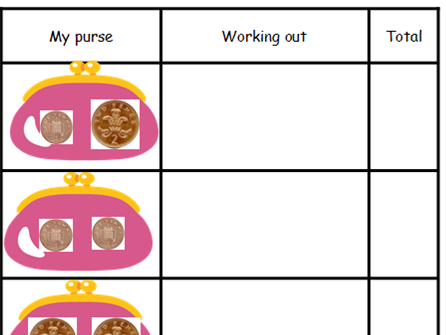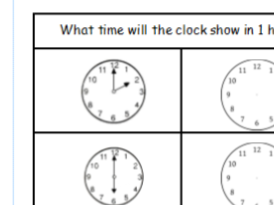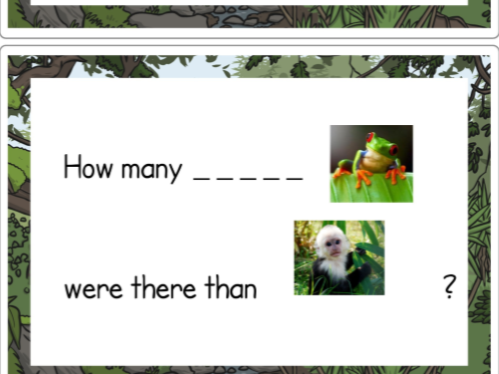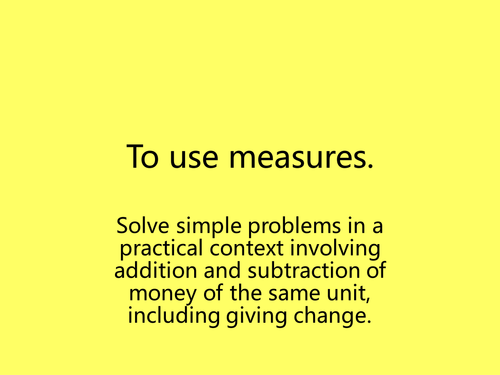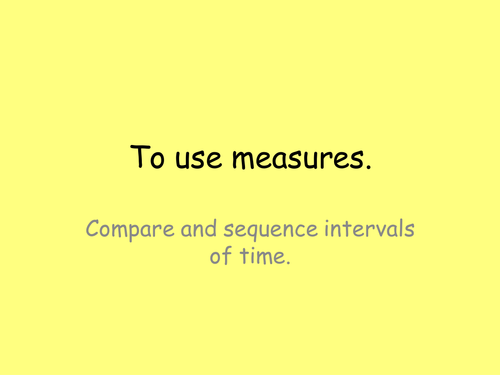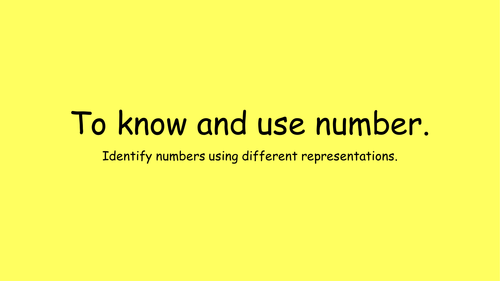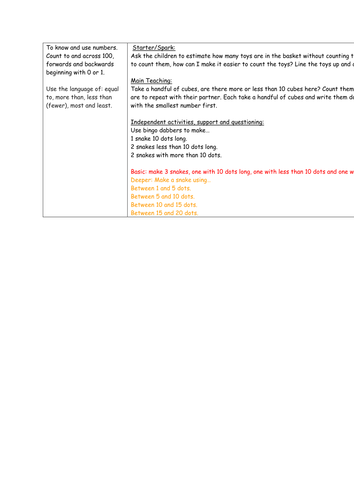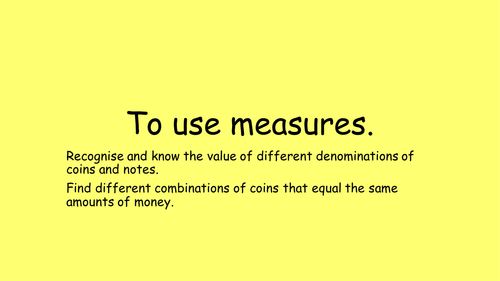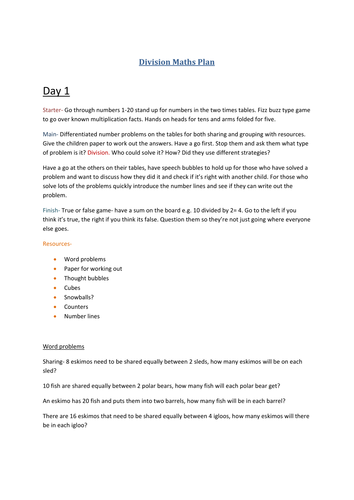
71Uploads
55k+Views
17k+Downloads
Mathematics

Year 1 ordering numbers to 100.
Starter or main activity for year 1 in maths. Children are to use the numbers on the sheet and put them in to order. Numbers used range from 1-100.

Place Value 3-Digit Numbers
A resource used to teach year 3 place value. This folder includes two files. The first is a starter where the children must order the 3-digit numbers printed on trains. Also included is an activity where the children must partition the 3-digit numbers printed on the trains into hundreds, tens and ones. Also comes with a blank set of trains.

Emoji fact families year 1 problem solving
Children are to solve the four fact families by working out what number the emojis could represent.

Year 1 Addition to 20
The first lesson for block 1 Spring 1 following the White Rose scheme. Due to the aility levels in my class the first lesson comprises of a warm up where ‘Beaky’ has jumbled up the numerals and words counting to 20 and the children have to move them around so that they are correct. I have then focused the first lesson solely on counting by adding on using the pictures for ‘first’, ‘then’ and ‘now’. This is the only part of the varied fluency included in this pack. The activities are differentiated. LA are to just fill in the sentences using the pictures with colour coordinated words. MA have higher numbers and have to complete the the ‘now’ picture (and in my class will have support) and HA are to complete independently without the colour coordinated words as a clue. I have then included two reasoning questions. I know that there are often problems when opening up a publisher document so I have also included the PDF. I hope it saves you time!

Money Year 1- knowing the value of coins and adding coins in my purse
A whole lesson on teaching money to year 1. The starter gets the children to match the coins to their value which is one of the NC objectives. There are then a few examples of coins in a purse on the board. This gets the children thinking about how to add different coins and how to write this as a number sentence. After the whole class input the children have their own purses in their books. This activity is differentiated with LA children working with 1p’s and 2p’s. MA are using coins up to 10p and HA children are working with coins up to 50p. The pack also comes with next steps stickers to be used when marking or when moving the children on in the lesson.

Year 1 teaching symmetry
A lesson which has been differentiated three ways to teach year 1 children about symmetry. The pack includes a powerpoint, a plan, three different differentiated activities and next steps for the year 1 children to complete.

Year 3 Angles
A range of resources to help children to come to terms with different angles. I created angle eaters so that the children could first investigate the angles that they could find around the classroom. Once the children had found a range of different objects containing right angles I used the alien angles display to get the to think about obtuse and acute angles. After investigating these with the angle eaters we moves on to labeling and sorting different angles and the angles within shapes.

Time interval problems KS1
A presentation and activity for working out the new time. Comes with a starter recap and a problem for the children to solve altogether. Main teaching includes differentiated activities for children to complete. LA activity working out what time it will be once an hour is added to o'clock, MA working out the time once an hour is added to o'clock and half past and HA activity adding increments of 5 minutes to find the new time. Children are to work out the new times and draw the hands on the clock to show these times.

Year 1 Tally Charts using Jungle animals and handling data
A resource created to teach year 1 children about handling data and creating tally charts. Children were told that we are going on a trip to the jungle and that in their packs there were some animals that needed to be released back into the wild. The first activity was to sort the animals (this was the whole session for my LA children), they then used the animal pictures to complete the tally chart (a discussion happened here to recap what a tally chart is and what to do when we count five of something). Afterwards the children were to answer the questions about their tally chart. As a next step or reasoning question the children were asked to write their own question to ask someone about the tally chart, there was a frame to support children in this.

Year 1 adding money and giving change
A lesson created to teach children about adding different amounts of money. The children were to choose toppings from the pancake shop and to add them and work out how much money it would cost them to buy the pancake. LA children are to add two different toppings, MA to add 3 toppings (adding three one-digit numbers is part of the curriculum) and HA children are to work out change. This pack contains a lesson plan, differentiated activities and a powerpoint presentation.

Time interval problems year 1
A lesson on time interval problems for year 1. The powerpoint presentation recaps what the children already know about intervals of time and the clock and then asks them to solve a word problem on the board using their clocks and circular card folded into halves and quarters. Also included are differentiated word problems for quarter, half and full hours. The LA problems start from o'clock whereas the HA start from various points around the clock.

Adding two one-digit numbers year 1
This pack contains a power point and activity for teaching year one how to add two one-digit numbers. The power point uses examples of adding two one-digit numbers using fruit and then asks the children how we would write a number sentence to go with the pictures. The activity is a continuation of this with the children counting the fruit in the picture and writing the number sentence below before writing the answer. The pack also comes with a next step activity where the children are to work out the missing number in the number sentence.

Year 1- more and less than activity working with numbers to 20.
A year 1 lesson where children are beginning to look at finding more or less than numbers to 10. Includes a lesson plan which includes a starter where children are beginning to estimate and thinking about more efficient ways to count objects. Also comes with an activity where children are to create snakes using more or less than a certain number of dots. The pack comes with differentiated question cards which can be cut out or printed on stickers to put into books or used on the table for the children to make using cubes. The red snakes are for LA, green for MA and blue for HA. The lesson plan also comes with a 'where next' activity which gets children thinking about counting in 5's as well as number order.

Polar Express Activities to teach time.
A resource used for year 3 children when looking at time. The resource was created to get the children to think about different time intervals. The activity comes with question cards which ask the children to look at the different trains on the time table and work out how long it has taken for the trains to get from the station to the North Pole. The questions range from working out time intervals within and over an hour. The questions are differentiated with some asking the children to identify which train left at a certain time and others to work out the shortest and longest journey. The timetable and tickets are both Polar Express themed.

Measuring year 1
A pack created for the first lesson in teaching measure to year one. The powerpoint is based around the theme of the Wizard of Oz and the children are set an initial problem to solve by Dorothy. The powerpoint then asks the children to think about how they could solve this problem and what we could use to measure lengths and heights. This lesson the children were only using non standard units of measure and the HA children moved on to using rulers the following day. The pack comes with an activity for children who will be working independently as well as a teacher led activity. Both activities are practical and hands on which get the children practising measuring length.

To use measures- to add money and to find different amounts that equal the same amount.
A lesson plan and activities created to teach children in year 1 about adding money and finding different coins that equal the same amount of money. This pack contains a lesson plan, lesson starter and differentiated activities along with a powerpoint.

Intervals of time year 1
A lesson plan, powerpoint presentation and differentiated activities for working out intervals of time. A lesson which was taught towards the end of our first time topic. The lesson was themed around our castle topic and is linked to a jousting tournament and how long the tournament lasted. LA children are working out time intervals for o'clock and half past, MA to quarter past and HA are using increments of 5 minutes.

Addition year 1
Pack contains a power point presentation along with a lesson starter where children are to match the number bonds to ten, also included are mild, hot and spicy addition questions including the addition of two one-digit, one-digit and two-digit and two two-two digit numbers.

Year 1 planning and resources for Block 1 Autumn 1 Place Value following White Rose
A bank of resources, lesson plans and activeinspire flipcharts to use alongside the White Rose guidance for year 1 Block 1 Autumn. Includes differentiated activities for the main lesson, lesson starters and reasoning questions.

Division- sharing and grouping year 3
A range of different resources to be used when teaching division to year 3. I linked the learning to the Ice Bear topic and as a result the children were sharing and grouping using the Eskimos and sleds as well as 'snow balls'. This resource pack contains pictures as well as lesson ideas and word problems for both grouping and sharing. I have also included a 'be the teacher' starter activity where the children have to find and fix the mistakes.





